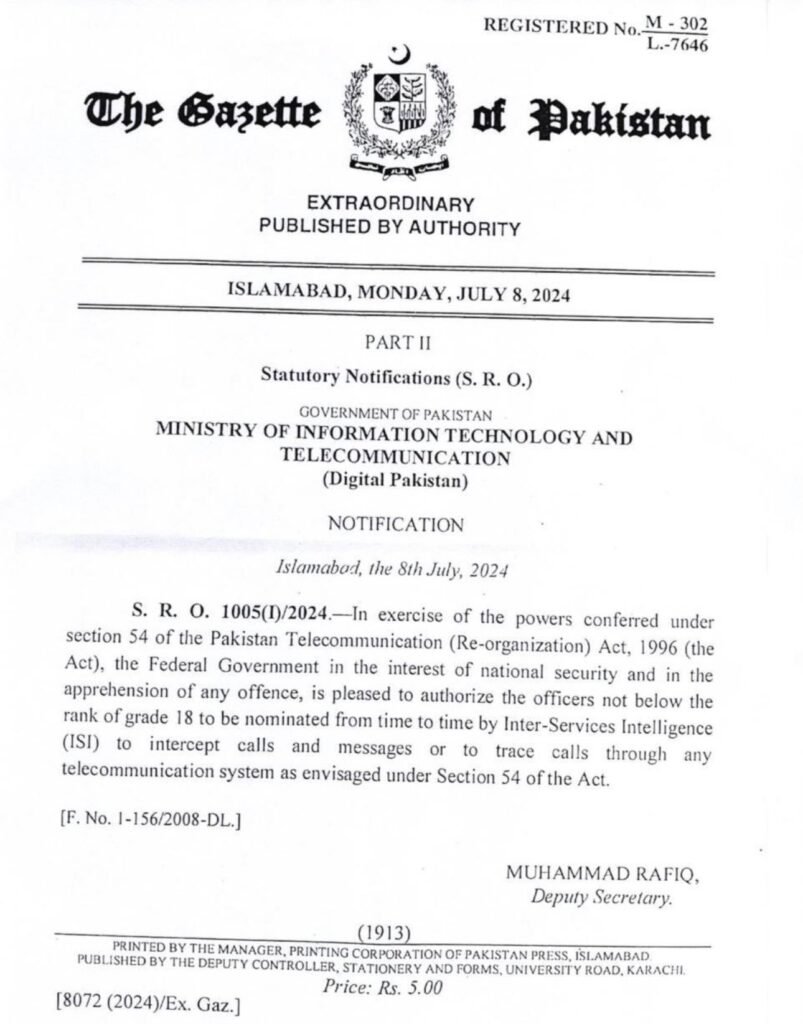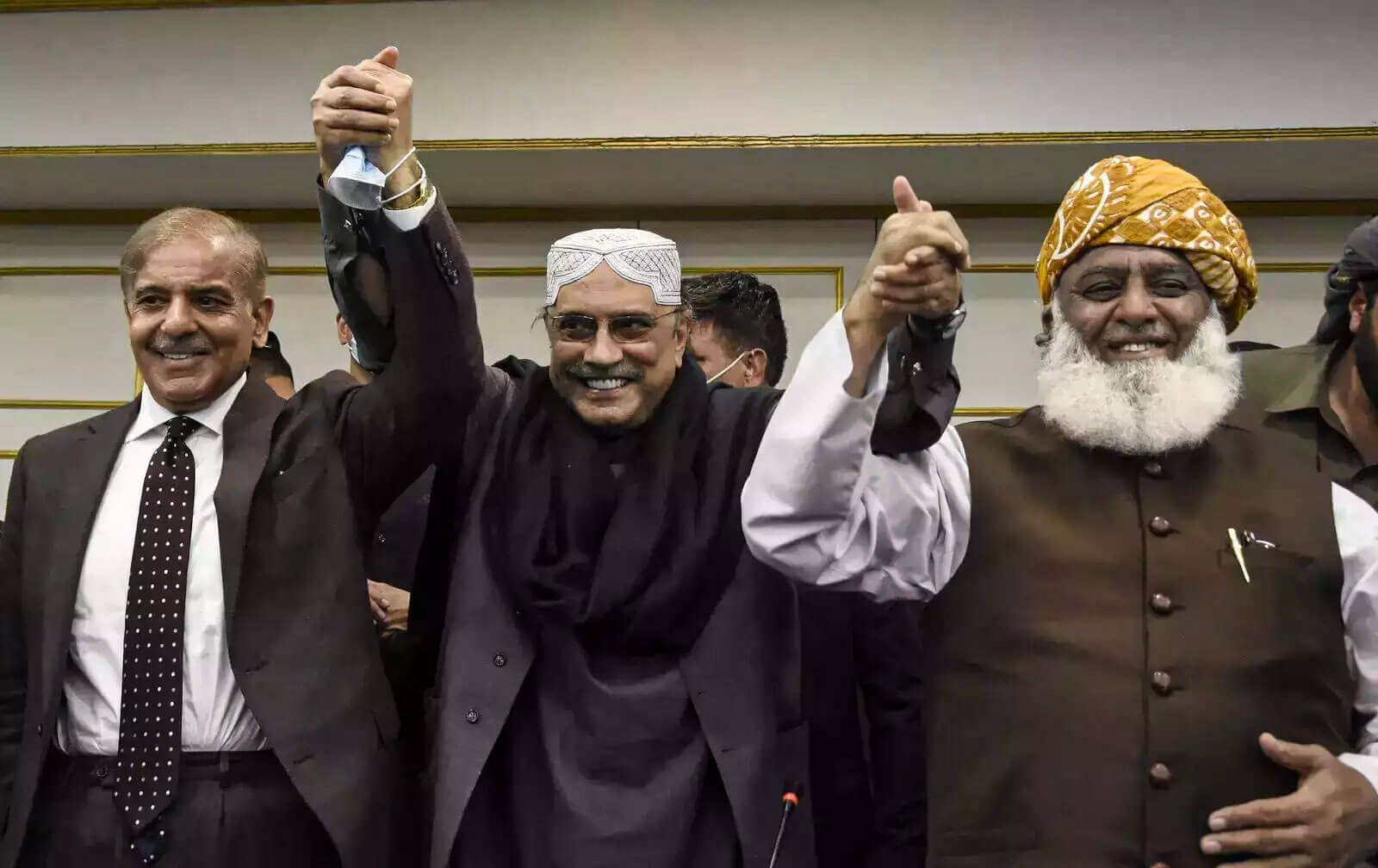Human Rights Violations
Pakistan’s government authorised top spy agency to trace and intercept calls & messages
Pakistan’s government has authorized the Inter-Services Intelligence (ISI) to intercept & trace calls in the interest of national security.

In a blatant disregard for both people’s privacy and an order by Islamabad High Court Judge Justice Babar Sattar, the government of Pakistan has authorized the Inter-Services Intelligence (ISI) to intercept and trace calls in the “interest of national security.”
A notification issued by the Ministry of Information Technology and Telecommunication formally authorized this illegal surveillance by spy agencies. The notification read as follows:
“In exercise of the powers conferred under Section 54 […] the federal government in the interest of national security and in the apprehension of any offence, is pleased to authorise the officers not below the rank of grade 18 to be nominated from time to time by the Inter-Services Intelligence (ISI) to intercept calls and messages or to trace calls through any telecommunication system as envisaged under Section 54 of the Act”.

The issue of surveillance by agencies gained attention when audio clips, including those of former Prime Minister Imran Khan and his wife, Bushra Khan, were released on social media in the lead-up to the February 8, 2024, general elections.
In December 2023, the Islamabad High Court (IHC) was informed during the hearing of a case related to audio leaks that the government had not permitted any intelligence agency to tap phone calls or audio conversations.
At the time, the Attorney General for Pakistan (AGP) Mansoor Usman Awan had informed the high court during the hearing of a petition filed by ex-premier Imran Khan’s wife, Bushra Bibi, who was seeking action against a leaked conversation allegedly featuring her and PTI leader Latif Khosa.
On December 6, 2023, the former first lady approached the Islamabad High Court, challenging the illegal surveillance. She contended that the recording breached the right to dignity and privacy ensured by Article 14 of the Constitution. The application, filed in the IHC through Khosa, cited the principal secretary to the prime minister and the secretaries of defence and interior as respondents.
Unauthorized surveillance: Invasions of privacy of citizens and violations of fundamental human rights
Electronic surveillance activities not only violate freedom of expression, the right to privacy, and life but also inevitably affect all areas of governance, including judicial independence. Absurd laws, introduced in the name of national security, have no legal basis and are merely used as tools to suppress people’s voices and wills.
Former prime minister Imran Khan’s PTI party reacted to the notification, stating that granting “unlimited powers for phone tapping to authorities” equated to a “lack of privacy and human rights.”
Moreover, activists and social media users have also expressed deep concern about the privacy violations such mass surveillance would cause. Fundamental rights, including freedom of expression, are already quite restricted in Pakistan, (with people facing threats and abductions for mere tweets).
Former human rights minister and PTI member Shireen Mazari also took to her X account to denounce the move. She likened it to George Orwell’s novel “1984,” which depicts the use of censorship by totalitarian regimes to control information, manipulate reality, and suppress dissent.



